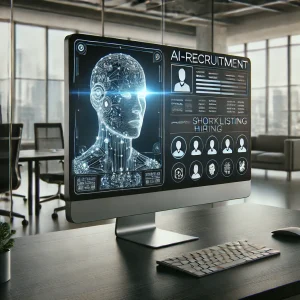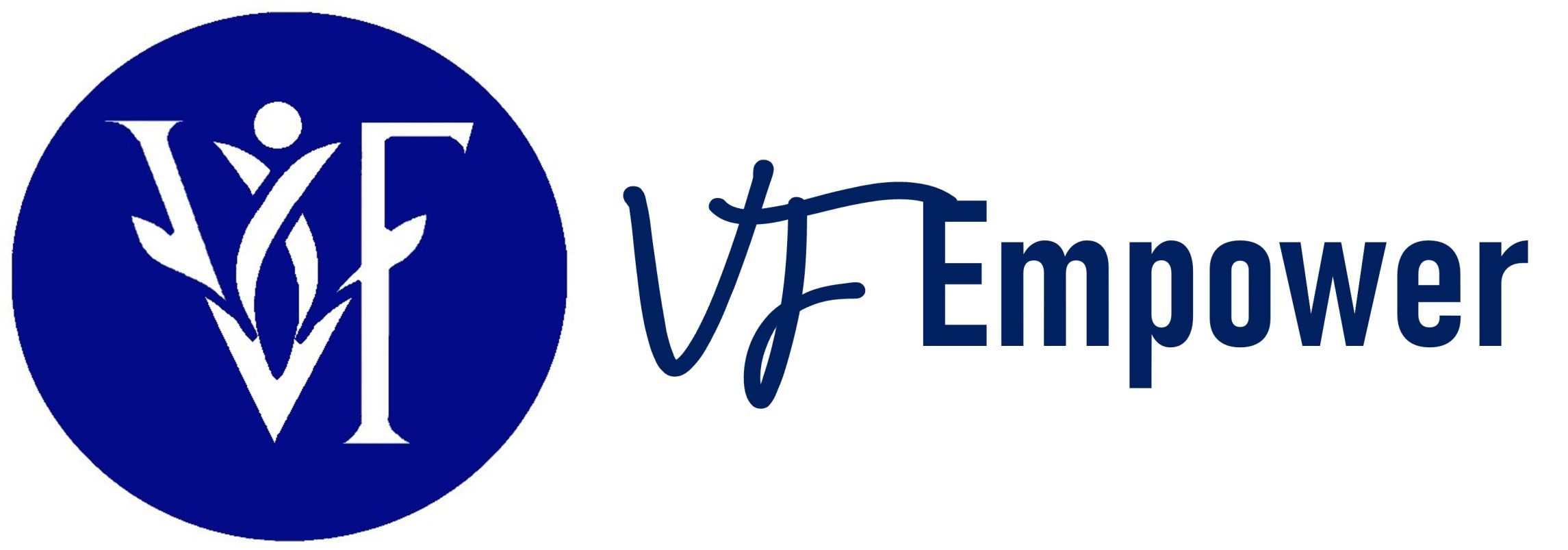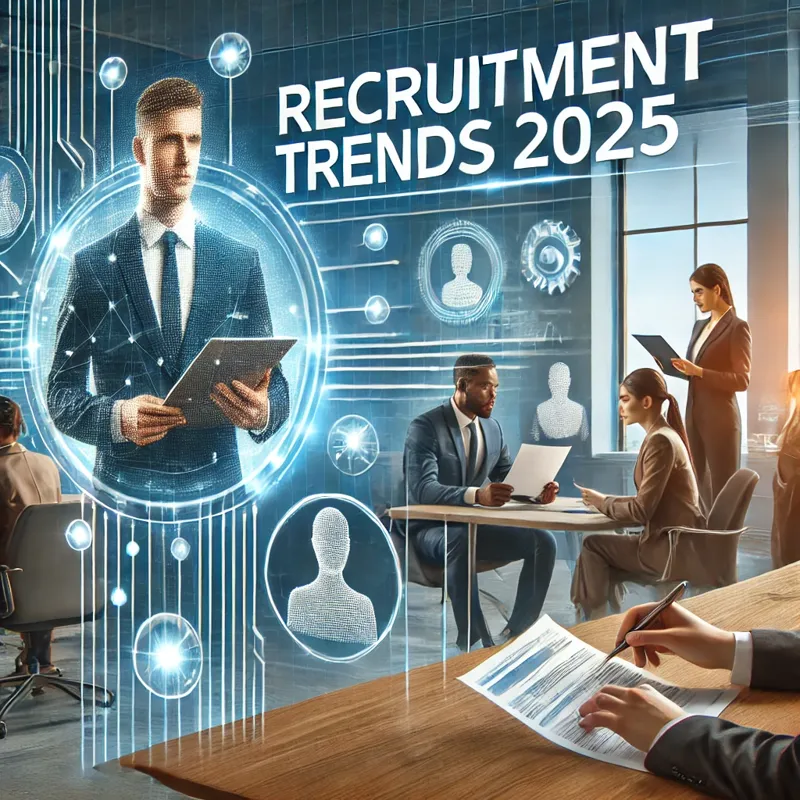Table of Contents
- 1 Introduction: A Recruiter’s Wake-Up Call
- 2 Automation and AI in Recruitment: The Future of Hiring for Global Talent
- 3 Skills-Based Hiring Over Traditional Hiring Methods
- 4 Hybrid Work and the New Hiring Trends
- 5 Employer Branding and Its Impact on Recruitment Strategies
- 6 Diversity Hiring and Expanding the Talent Pool
- 7 Engaging Passive Job Seekers and Strengthening Talent Pipelines
- 8 The Emerging Trends of the Gig Economy and Short-Term Hiring
- 9 Data-Driven Recruitment and the Power of Artificial Intelligence in Hiring
- 10 Candidate Expectations: Work-Life Balance, Remote Work, and Well-Being
- 11 Predictions for 2025 and Beyond: The Future of Staff Recruitment
- 12 Final Thoughts on Latest Trends
- 13 Next Step
Introduction: A Recruiter’s Wake-Up Call
 Sarah had been a hiring manager for over a decade. She prided herself on her instincts—she could tell in the first five minutes of an interview whether a candidate was the right fit. But in 2025, things were different. The recruitment industry had evolved, and traditional hiring methods were no longer effective. Businesses now had to adapt to recruitment trends 2025, which emphasized AI-driven hiring, skills-based recruitment, and hybrid work models.
Sarah had been a hiring manager for over a decade. She prided herself on her instincts—she could tell in the first five minutes of an interview whether a candidate was the right fit. But in 2025, things were different. The recruitment industry had evolved, and traditional hiring methods were no longer effective. Businesses now had to adapt to recruitment trends 2025, which emphasized AI-driven hiring, skills-based recruitment, and hybrid work models.
The hiring market was filled with job seekers from broader talent pools, including self-taught professionals, gig workers, and global candidates looking for remote work. Instead of scanning through a few hundred resumes, AI in recruitment was filtering thousands of applications in seconds. Recruiting professionals were no longer just screening resumes; they were implementing data-driven recruitment strategies to attract and retain top talent.
Candidates were more selective, prioritizing employer brand, career growth, and hybrid work opportunities. Some of Sarah’s top candidates ghosted her before she could even schedule an interview. Others rejected offers because they were being courted by multiple companies using AI-powered recruitment tools.
Recruitment was evolving, and hiring managers like Sarah knew they had to adapt to the latest recruitment trends in 2025. This blog explores the top recruitment trends shaping the hiring landscape and how HR professionals can refine their recruitment strategies to thrive in 2025.
Automation and AI in Recruitment: The Future of Hiring for Global Talent
AI-driven recruitment has moved from an emerging technology to a mainstream recruitment tool in 2025 and beyond. From hiring practices to candidate experience, artificial intelligence is transforming how recruitment and talent acquisition teams operate.
How AI is Shaping 2025 Recruitment Trends

- AI-powered recruitment automation: Reduces administrative work for recruiters, allowing them to focus on hiring strategies and recruitment efforts.
- Data-driven recruitment decisions: AI can analyze resumes, predict job fit, and match top talent with job descriptions efficiently.
- Improved candidate experience: Chatbots assist with scheduling, responding to inquiries, and keeping candidates engaged in the hiring process.
- Better hiring practices through bias reduction: AI tools help recruiting professionals make more objective hiring decisions.
AI and the Competitive Hiring Market
Companies that invest in AI-driven recruitment will have an edge in the competitive hiring landscape by reducing time-to-hire, improving the retention of new employees, and reaching a broader talent pool.
Recruitment and talent acquisition teams that effectively combine AI-powered recruitment with human intuition will find great talent, retain top talent, and stay ahead in the recruitment industry in 2025.
Skills-Based Hiring Over Traditional Hiring Methods
One of the most significant emerging trends in recruitment trends for 2025 is hiring for skills over degrees. HR professionals and talent acquisition teams are shifting away from credentials-based hiring and embracing skills-based hiring to overcome talent shortages.
Why Skills-Based Hiring is Among the Key Trends in 2025
- Hiring based on competency expands the talent pool, allowing companies to recruit diverse talent.
- Addressing talent gaps: Many job seekers are self-taught or have certifications that don’t fit traditional hiring standards but are highly skilled.
- More effective recruitment strategies: By assessing job seekers’ practical skills, employers make better hiring decisions and improve talent retention.
How Employers are Assessing Skills
- Competency-based interviews: Focus on real-world problem-solving rather than education credentials.
- Skill-based assessments: More companies are integrating AI-driven recruitment tools to evaluate a candidate’s real-world abilities.
- Micro-certifications and on-the-job training: Encouraging internal development to fill talent gaps.
Why Skills-Based Hiring is the Future of Recruitment
Companies using skills-based hiring will be better equipped to attract top talent and retain top talent by hiring individuals based on their capabilities rather than their academic background.
Hybrid Work and the New Hiring Trends
As companies redefine their recruitment strategies, hybrid work has become a key trend in 2025 recruitment trends. Employees expect flexible work arrangements, and companies must adjust their hiring and recruitment processes accordingly.
What is Hybrid Work in the Recruitment Industry?
- Remote work remains a priority: Employees are demanding workforce flexibility as part of their employment package.
- Asynchronous collaboration: Many companies now operate in global talent markets, allowing employees to work from different time zones.
- Customized work environments: Employees want the option to work onsite, remotely, or in a hybrid setup, which affects how employers approach the recruitment process.
The Impact on Employer Branding and Retention
Companies that embrace hybrid work models:
✅ Attract and retain top talent who prioritize flexible work options.
✅ Improve talent retention, as employees who have autonomy are less likely to leave.
✅ Strengthen their employer brand, making them an attractive choice for job seekers.
Challenges of Hiring in a Hybrid Work Environment
📌 Onboarding remote staff effectively requires new recruitment tools.
📌 Building a strong company culture when employees are working remotely.
📌 Managing performance and engagement in a decentralized workforce.
Companies that optimize their hiring practices to support hybrid work models will lead the way in recruitment trends in 2025.
Employer Branding and Its Impact on Recruitment Strategies
 Mark had two job offers. One company offered a slightly higher salary, but the other had a strong employer brand, a reputation for workforce diversity, and a clear path for career growth. He chose the latter.
Mark had two job offers. One company offered a slightly higher salary, but the other had a strong employer brand, a reputation for workforce diversity, and a clear path for career growth. He chose the latter.
This is the reality of recruitment in 2025. Employer branding is no longer just a marketing strategy—it is a key hiring strategy that influences how companies attract and retain top talent.
Why Employer Brand Matters in Hiring and Recruitment
- Attracting and retaining talent: A strong employer reputation helps companies find great talent in a competitive hiring landscape.
- Improved candidate experience: Transparency in company values, work culture, and benefits enhances the recruitment process.
- Better recruitment efforts: A well-defined employer brand reduces staff turnover and improves talent retention.
Building a Strong Employer Brand
✔ Showcase company values: Recruitment and talent acquisition teams should highlight what makes their company unique.
✔ Use social media strategically: Engage with job seekers and share company culture insights.
✔ Prioritize candidate experience: Ensure a seamless hiring process to build a positive reputation.
Companies investing in their employer brand will see greater success in hiring and recruitment, making them a preferred choice for top talent in 2025 and beyond.
Diversity Hiring and Expanding the Talent Pool
Companies can no longer afford to overlook diverse talent pools. Diversity hiring is one of the top recruitment trends shaping the future of talent acquisition.
Why Diverse Hiring is a Key Trend in 2025
- Better workforce performance: Studies show that diverse teams drive innovation and business success.
- Wider talent market: Expanding recruitment efforts ensures companies don’t miss out on the best talent.
- Legal and ethical considerations: Many countries are implementing policies encouraging diverse hiring.
Effective Recruitment Strategies for Diverse Talent Acquisition
📌 AI-driven recruitment tools: AI reduces hiring bias and helps employers tap into a broader talent pool.
📌 Skills-based hiring: A shift away from traditional hiring methods allows companies to hire based on skills rather than background.
📌 Inclusive hiring practices: Companies must implement structured interviews and hiring practices that promote diversity.
The latest recruitment trends highlight the importance of inclusive hiring and a diverse workforce. Companies that proactively integrate diverse hiring strategies will thrive in 2025 and beyond.
Engaging Passive Job Seekers and Strengthening Talent Pipelines
Did you know that over 70% of job seekers are passive candidates—people not actively looking for jobs but open to the right opportunity? Recruitment trends for 2025 show that the most successful companies are those that can engage passive candidates before they even enter the job market.
How to Attract Passive Candidates
💡 AI-powered recruitment: Predictive analytics help companies recruit talent before they start job-hunting.
💡 Employer brand storytelling: A strong employer brand convinces top professionals to consider new opportunities.
💡 Personalized outreach: A generic job offer won’t cut it—hiring managers need to craft personalized messages that speak to career growth.
Why Passive Candidate Engagement Matters in 2025
- Expands the talent pool: Engaging with passive job seekers allows companies to access broader talent pools.
- Shortens hiring cycles: A pre-engaged talent pipeline means recruiters can hire faster.
- Improves workforce retention: Passive candidates tend to be higher-quality hires and stay longer.
Companies prioritizing passive talent acquisition will have an advantage in recruitment and talent acquisition in 2025 and beyond.
The Emerging Trends of the Gig Economy and Short-Term Hiring
The labor market is changing rapidly. In 2024 and 2025, the gig economy has expanded significantly, with more professionals choosing freelance, contract, or project-based work over traditional employment.
Why Gig Work is One of the Top Recruitment Trends in 2025
✔ Flexibility for both employers and staff: Companies can fill short-term skill gaps quickly.
✔ Cost-effective talent acquisition: Businesses save money by hiring specialists for specific projects.
✔ Access to global talent: Companies can recruit from broader talent pools beyond local markets.
Challenges of Gig Economy Recruitment
🚧 Lack of long-term loyalty: Companies must work harder to retain skilled freelancers.
🚧 Onboarding and compliance issues: Managing contract workers requires new recruitment strategies.
🚧 Talent retention challenges: Employers need to create incentives for repeat engagements.
How Employers Can Adapt
- Improve hiring strategies to make onboarding seamless.
- Use AI-driven recruitment tools to match freelancers with project-based roles.
- Invest in long-term freelancer engagement to create a reliable talent pipeline.
Recruiting professionals who successfully integrate gig hiring into their recruitment process will stay ahead in the hiring market.
Data-Driven Recruitment and the Power of Artificial Intelligence in Hiring
In 2025 and beyond, recruitment is evolving from intuition-based decision-making to data-driven recruitment. Companies leveraging AI-powered recruitment tools are making better hiring decisions, improving the candidate experience, and filling roles faster than ever before.
How AI-Driven Recruitment is Changing Hiring Practices
📊 AI in recruitment streamlines the hiring process by identifying top talent from a broader talent pool.
📊 Predictive analytics help recruiters determine which candidates will have higher retention rates.
📊 Automated job descriptions ensure inclusivity and attract diverse talent.
📊 AI-powered chatbots improve the candidate experience, reducing drop-offs in the recruitment process.
Key Metrics in Data-Driven Hiring Strategies
📌 Time-to-fill: How fast a company can recruit and hire top talent.
📌 Quality of hire: Measured through performance reviews and retention rates.
📌 Hiring market trends: Data helps HR leaders stay ahead in a competitive hiring landscape.
Why Data-Driven Recruitment is one of the Key Recruitment trends 2025
Companies using AI-driven recruitment strategies will:
✔ Attract and retain top talent faster.
✔ Make more precise hiring decisions.
✔ Improve the overall recruitment and talent acquisition process.
Employers who fail to implement AI in recruitment risk falling behind in the hiring market as recruitment industry standards shift toward efficiency and accuracy.
Candidate Expectations: Work-Life Balance, Remote Work, and Well-Being
The job market in 2025 is candidate-driven, and hiring managers must adapt to evolving expectations. Today’s job seekers prioritize work-life balance, remote work, and a supportive employer brand.
What Candidates Expect in 2025
🧠 Mental health and well-being programs are essential for talent retention.
💼 Flexible hiring practices allow employees to choose between hybrid work, in-office, or fully remote work.
📈 Career development opportunities help attract and retain top talent.
🤝 Diverse hiring initiatives make workplaces more inclusive for broader talent pools.
How Employers Can Adapt to Meet Top Talent Trends
✔ Offer hybrid and remote work options to accommodate modern workforce needs.
✔ Invest in training and development to retain high performers.
✔ Enhance the recruitment process with transparent job roles, salary expectations, and growth paths.
The latest recruitment trends indicate that companies prioritizing candidate experience will have a competitive advantage in hiring and recruitment.
Predictions for 2025 and Beyond: The Future of Staff Recruitment
As 2025 recruitment trends evolve, HR professionals must prepare for emerging trends in the labor market. Here’s what’s ahead:
AI Will Dominate the Recruitment Industry
🚀 AI-driven recruitment will be standard for hiring strategies.
🚀 AI-powered recruitment tools will optimize staff hiring efforts and enhance data-driven recruitment.
Skills-Based Hiring Will Replace Traditional Hiring Models
📌 Employers will recruit top talent based on skills rather than degrees.
📌 The shift to hiring for skills will reduce talent shortages.
Hybrid Work Will Be the Norm
🏢 Workforce flexibility will remain a priority for HR leaders.
🏢 Companies with hybrid work models will have an advantage in recruiting trends.
The Gig Economy Will Continue Growing
🎯 New recruitment efforts will focus on contract workers and diverse talent pools.
🎯 More companies will hire freelancers to fill talent gaps quickly.
Employer Branding Will Define Success in 2025
🏆 A strong employer brand will be essential for attracting and retaining talent.
🏆 Companies investing in effective recruitment strategies will thrive in 2025.
HR Technology Will Continue Advancing
⚙️ The latest trends in recruitment technology will automate hiring workflows.
⚙️ AI-powered recruitment tools will improve hiring decisions and candidate engagement.
Employers who embrace these recruitment trends in 2025 will find great talent, improve recruitment and talent acquisition, and build a workforce prepared for the future.
Final Thoughts on Latest Trends
 Recruitment in 2025 is more than just hiring—it’s about understanding industry trends, leveraging AI-powered recruitment, and creating an inclusive recruitment landscape that attracts and retains top talent.
Recruitment in 2025 is more than just hiring—it’s about understanding industry trends, leveraging AI-powered recruitment, and creating an inclusive recruitment landscape that attracts and retains top talent.
Businesses that embrace the latest recruitment trends will gain a competitive edge, while those stuck in traditional hiring models may struggle to fill roles effectively.
The future of recruitment belongs to companies that innovate, prioritize diversity, and invest in modern recruitment strategies.
Next Step
Want to master recruitment strategies and hiring decisions that attract and retain top talent?
Our Talent Acquisition & Recruitment: Hiring the Best Fit course teaches:
✔ How to hire top candidates in a competitive hiring landscape.
✔ How to implement skills-based hiring for a diverse workforce.
✔ How to use AI-driven recruitment to make better hiring decisions.
🎯 Enroll today and transform your hiring process!
📈 Also, don’t miss out on my blogs covering business strategies, management insights, job search, recruitment, technology and expert tips on credit control—essential reads for entrepreneurs and professionals! Explore them now!


